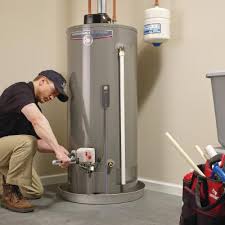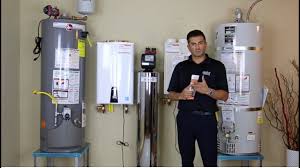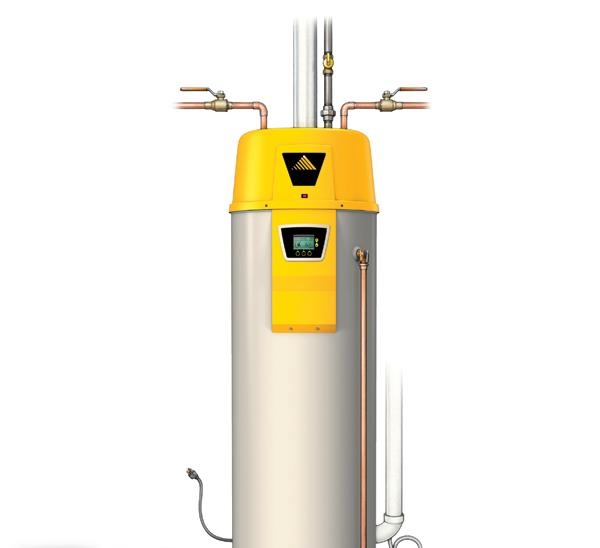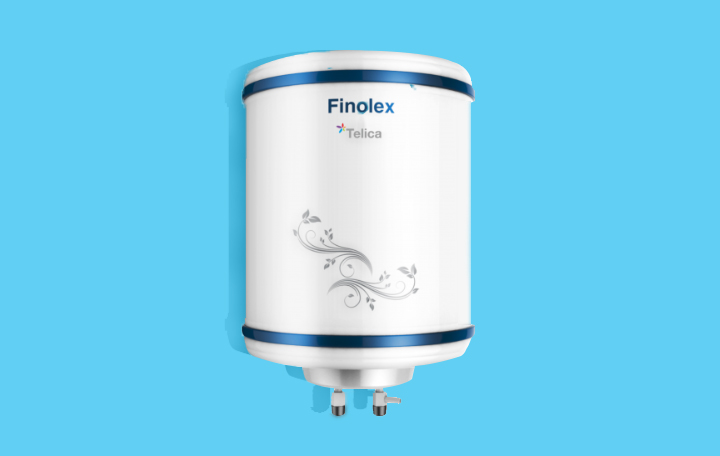How to Choose the Right Water Heater for your Home?
A water heater is the necessity of every home and is required wherever the water is used. But, in many cases, we see major problems with the water heater within a year. And these problems occur because before buying the water heater we don’t research well or consider the kind of water heater required for our home. Thus, to help you all in this article, we will be giving you basic tips and the way to choose the right water heater for your home.
Conventional storage water heater
Conventional storage water heaters are the most popular water heaters. These water heaters maintain and reserve hot water and you can use it anytime you turn on the tap. These water heaters are very convenient to use, but they consume more electricity than other types of water heaters as it needs to heat the water constantly to make the water hot for a long time.
Instant water heaters
An instant water heater only heats the water when the tap is turned on. As soon as the tap turns on, the cold water travels to the heating element in the water heater and instantly turns hot. This is why these water heaters are called instant water heaters.
Air-water heaters
The air-water heater generates the heat from the air and is extremely efficient as it consumes less electricity. You can save up to 60% of electricity by using air-water heaters.
Solar water heaters
Solar water heaters are very energy-efficient as they rely on energy from the sun. But, the installation of solar water heaters is very expensive and may not be affordable for many people. Thus, using Solar water heaters is a better idea.

HOW TO CHOOSE THE RIGHT WATER HEATER FOR YOUR HOME
A cold shower. If you’ve ever experienced one, it’s not something you’ll likely want to repeat. But without a reliable water heater in your home you may have the pleasure more often than you’d like. There are plenty of other good reasons to consider upgrading or replacing your current water heater beyond a shocking shower. If your current water heater is pushing 10 years old, the likelihood of failure will increase. In addition, older water heaters are much less efficient than newer styles and models. And consider the damage a leaking or broken hot water heater can do to your home. So before you get stuck with an emergency repair or replacement consider the different kinds of water heaters and evaluate which is best for you.
Let’s Talk Fuels
To enjoy hot water in your home, you’ll need a fuel source to heat the H2O. Not all of us will have the same options available, depending on where we live, so there will be sources that you can rule out right away. Let’s examine the options.
Electricity — Electricity has a lot going for it. It’s readily available and works with conventional tank-type designs, plus on-demand tankless heaters, heat pump systems and other options.
Natural gas and propane — These fuel sources also work with a variety of heater types. One advantage of this fuel source is availability during a prolonged power outage. Even if your home is dark, you can still enjoy a hot shower. Of course, if you use propane it’s necessary to ensure that you keep your tank filled.
Solar — You don’t have to live in southern state to utilize solar energy for water heating, but the efficiency of these systems is greater in areas like the southwest, where temperatures are generally warmer and the sun shines more frequently

Choosing a New Water Heater
We walk you through the pros and cons of high tech water heaters – tankless, heat pump, condensing gas and point-of-use models. They save energy and can save you money as well. When your old water heater dies, consider replacing it with one of these types, as well as efficient conventional models.
Compare water heaters before you buy
Water heater technology is changing—fast! And even though all the new models are more energy efficient water heater models, that doesn’t mean you’ll find them the most cost effective for your family. So before you plunk down big bucks for a high-tech heater, take a minute to understand how each style works, its pros and cons, and its projected payback to best the best gas water heater. Your goal is to find the right balance between performance and efficiency for your particular home. However, if you’re really into numbers crunching, use the worksheets at energysavers.gov
First, check the ratings
There are two ratings to check before you buy any heater: the energy factor (EF), which tells you how efficient it is, and the first-hour recovery (for storage tank heaters) or flow rate (for tankless).
Tankless water heaters
Instead of keeping 40 or 50 gallons of hot water on call 24 hours a day—which wastes energy—a tankless unit heats water only when you need it. A flow sensor detects when you open the faucet. Then the gas valve opens and the burners fire up. The heater measures the incoming water temperature and calculates how quickly the water should flow past the burners. So, if the incoming water is 65 degrees F (typical summer temperature), the heater will provide its maximum flow rate. But if the water is only 35 degrees, the heater will throttle back the flow rate by almost 50 percent. Check with your local utility to find out the water temperature. The average home center price for a tankless heater is $1,000, plus about $200 for a stainless vent.
Tankless Water Heater Pros:
Nothing beats a tankless heater for putting out lots of hot water—it never runs out.
A tankless heater saves about 30 to 50 percent in energy costs over a conventional gas heater (minimum EF of .82 vs. .54 for conventional).
A tankless heater is small and hangs on the wall, freeing up floor space.

How to choose your water heater: our advice
ASSESS YOUR NEEDS
The quantity needed of DHW depends on how many people live in your household and on their habits. If you have reasonable hot water consumption, on average, 40 to 50 liters of DHW per day and per person is to be expected. An accurate assessment of your needs is necessary. Indeed, if underestimated, you will get cold showers! At the contrary, if overestimated, your electricity bill will increase since too much hot water is produced for nothing. Smartly, some water heaters memorize your daily consumptions and adjust hot water production depending on your actual needs
WATER QUALITY
The water quality of the distribution system can directly affect the lifetime of your appliance. If you have a balanced water, then there is no problem. However, if it is too hard, it can cause scaling, in particular to the heating element. If aggressive, it can cause a faster tank corrosion. Rather, select a water heater fitted with Steatite heating element protected by enamelled steel sleeve. Beware of water softeners, incorrectly tuned, they produce a far too aggressive water, therefore, too corrosive
WHICH MODEL TO CHOOSE?
You can select either a conventional electric, a heat-pump or a solar water heater. Another important point: Pick the right spot depending on how much space is available. According to models, water tanks can be installed in many ways (wall mounted horizontally or vertically, floor standing…), in the most confined spaces or can require more space, even a technical room (for solar or heat pump water heaters).
ELECTRIC WATER HEATER
Cost-effective to purchase and easy to install, it is the simplest solution: the tank water is heated by an electric heating element. Simple and effective: a modern electric water heater combines electronic thermostat and digital display unit. The most modern ones include self-learning functions
SOLAR WATER HEATER
You can expect 50 to 70 % savings on your DHW bill by selecting a solar water heater! The water is preheated naturally by the solar collectors located on the roof. Indeed, they contain a heat conducting fluid able to transfer the solar energy to the hot water tank, through a heat exchanger. This option requires some more space and a roof adapted to solar collectors or a terrace.

BUYING GUIDE FOR WATER HEATERS
India is famous for its extreme weather conditions; as we are well versed with the changing temperatures, it’s always better to be fully equipped to sustain these climate changes. Although we love the winter season, we should definitely hand it down to the man who invented water heaters to help us shower in the cold, chilling winters of India. The rattling of teeth and the shivering body can only be stopped by a warm, relaxing bath. That’s where our hero, “water heater” comes in.
Want to know how a water heater works?
A typical Electrical water heater works on a simple mechanism, a electric heating unit is connected to a 220- volt circuit. To warm up the water, the current is allowed to pass through certain electrical-resistant heating element which is fixed in the middle of the tank. Power is delivered through a thermostat, which controls the water temperature.
We have the new way for getting hot water without worrying about the increasing electricity charges i.e. Solar water heater. The solar water heating system works on the principle of thermosyphone process and forced circulation. It uses Solar energy and can give up to 50-70C * hot water. The core of an ETC Solar water heater is a solar collector basically in the form of tubes and a storage tank. Evacuated tube acts as an absorber in the solar water heater and evacuated tube consists of two glass tubes having vacuum in between which is an excellent insulator. The incident solar radiation falling on the tube passes through the outer transparent tube and strikes the outer surface of inner tube. It absorbs heat energy and then passes to the cold water flowing in the tube. Thus a solar collector is one which turns the sun’s radiation into heat. A storage tank is exactly what it sounds like; It holds the water. An evacuated tube technology based solar water heating system is most energy efficient and cost effective.
What are the types of water heaters available in the market?
Who doesn’t love options? Even in the niche sector of water heaters, there are a lot of options available in the market for you to choose from. Depending on your needs and convenience, you can shop for a suitable water heater.
Storage water heaters (6 Litres and above):
The most basic and classic form of water heaters are Storage Water heaters. They are widely used for domestic purposes. The reason behind it being called storage water heaters is because of the storage tank installed inside the appliance. It can store hot water for a significant period of time even without electricity and thus allowing for usage as and when required